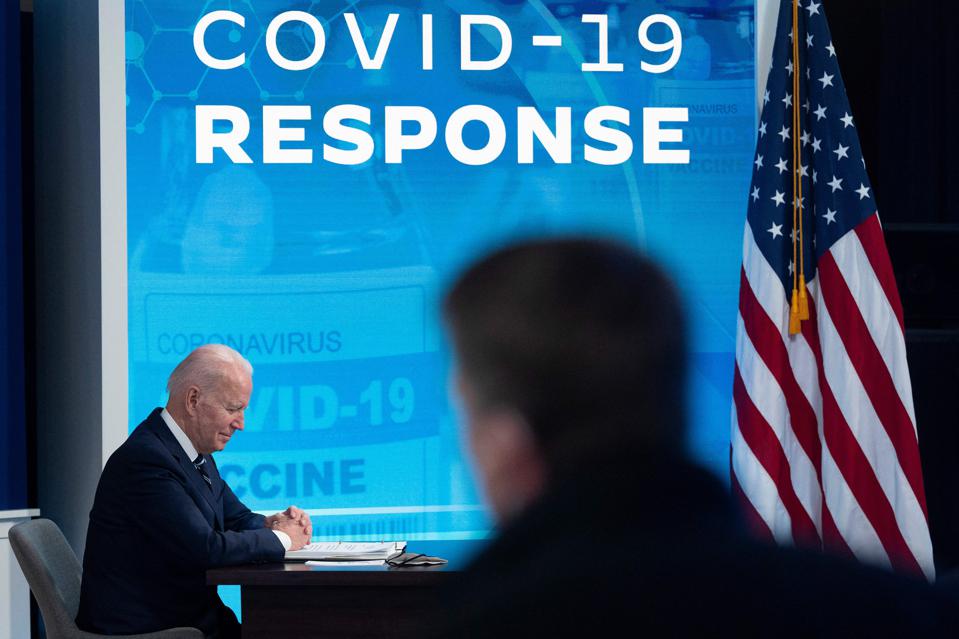Scientists have made enormous discoveries that have helped elucidate how to diagnose, treat, and vaccinate against Covid-19. Despite these breakthroughs, there is much more researchers and scientists are learning and still need to learn in order to tackle the challenges brought upon by the pandemic. Below are three questions they should investigate-
What Will The Next Covid Booster Vaccine Be Composed Of?
The original monovalent vaccine introduced at the end of 2020 targeted the initial strain of Covid-19 that was isolated in Wuhan, China. In September of 2022, a bivalent booster vaccine was introduced to target the Omicron BA.4 and BA.5 subvariants of Covid-19 in addition to the initial strain isolated in Wuhan. Researchers, scientists, and public health officials are now investigating what the optimal makeup will be of the next Covid shot, and when it should be administered to the public. According to an article in JAMA Network, the FDA would ideally like to provide one annual dose of the vaccine moving forward. Will the next booster still protect against the original strain, or will it incorporate various strains of Omicron like XBB.1.5, BQ.1, and BQ.1.1 that have been responsible for a large number of infections in America in previous months? These are critical questions that must be explored in order to curb deaths, hospitalizations, severe illness, and ultimately transmission of the virus amongst the general public. As Dr. Acharna Chatterjee, Dean of the Chicago Medical School at Rosalind Franklin University states, “Having vaccines is not sufficient, we need to have them used.” As of March 1, only 16% of eligible Americans have received the bivalent booster, underscoring the importance of clear messaging about the availability and importance of future boosters to the public moving forward from the pandemic.
What Long-Term Effect Will Covid-19 Have On Unemployment And Disability?
According to a recent research study that tracked over 15,000 individuals with prior Covid-19 infection in America, those with Long Covid were more likely to be unemployed and less likely to be employed full-time when compared to those that did not have long Covid but did have a prior Covid-19 infection. If Long Covid, or having symptoms 3 or more months after initially being infected with Covid that were not present prior to infection, is contributing to unemployment rates in America, then much more data and research is needed to clarify the full effect of Covid-19 on labor shortages and disability. This could mean needed services in medicine, engineering, tech, finance, education, and retail will be curtailed due to decreased personnel that are required to provide such services. More widespread data will be needed, and the US Census Bureau should explicitly ask about disability from long Covid as a routine question to American citizens to inform future public health policy.
How Can Covid-19 Testing Be Improved And Will This Be A Priority?
Although physicians rely on diagnostic tests and imaging to diagnose patients and treat diseases, they also commonly treat patients based on signs and symptoms of common diseases empirically before confirmation tests are available. To ensure accurate data with respect to infections, hospitalizations, and deaths for diseases like Covid-19, testing is critical. As an example, many cases of Covid-19 and the common flu present with similar symptoms such as fever, cough, and malaise. Without reliable testing in emergency departments, many cases of one could be misconstrued for the other.
There are many different types of test to clinically detect Covid-19 infection, including antigen tests and nucleic acid amplification tests such as PCR. The latter is known to be the most reliable test for those with or without symptoms. Despite this, PCR false negative rates are still high, especially in those with low viral loads such as children. This means that for some children, even a PCR test for Covid may be negative, but the child still may be infected with the virus. A real challenge for researchers and scientists will be to improve testing so COVID data can be more accurate, which will then hopefully inform better public health decisions such as whether childhood vaccinations should be mandated prior to attending schools. Improvements in testing will partly depend upon how large a priority scientists place on testing, which remains to be seen.
A New Focus
Answers and insights to these questions will help Americans move forward from the Covid-19 pandemic and are worth exploring to inform future public health policies.

